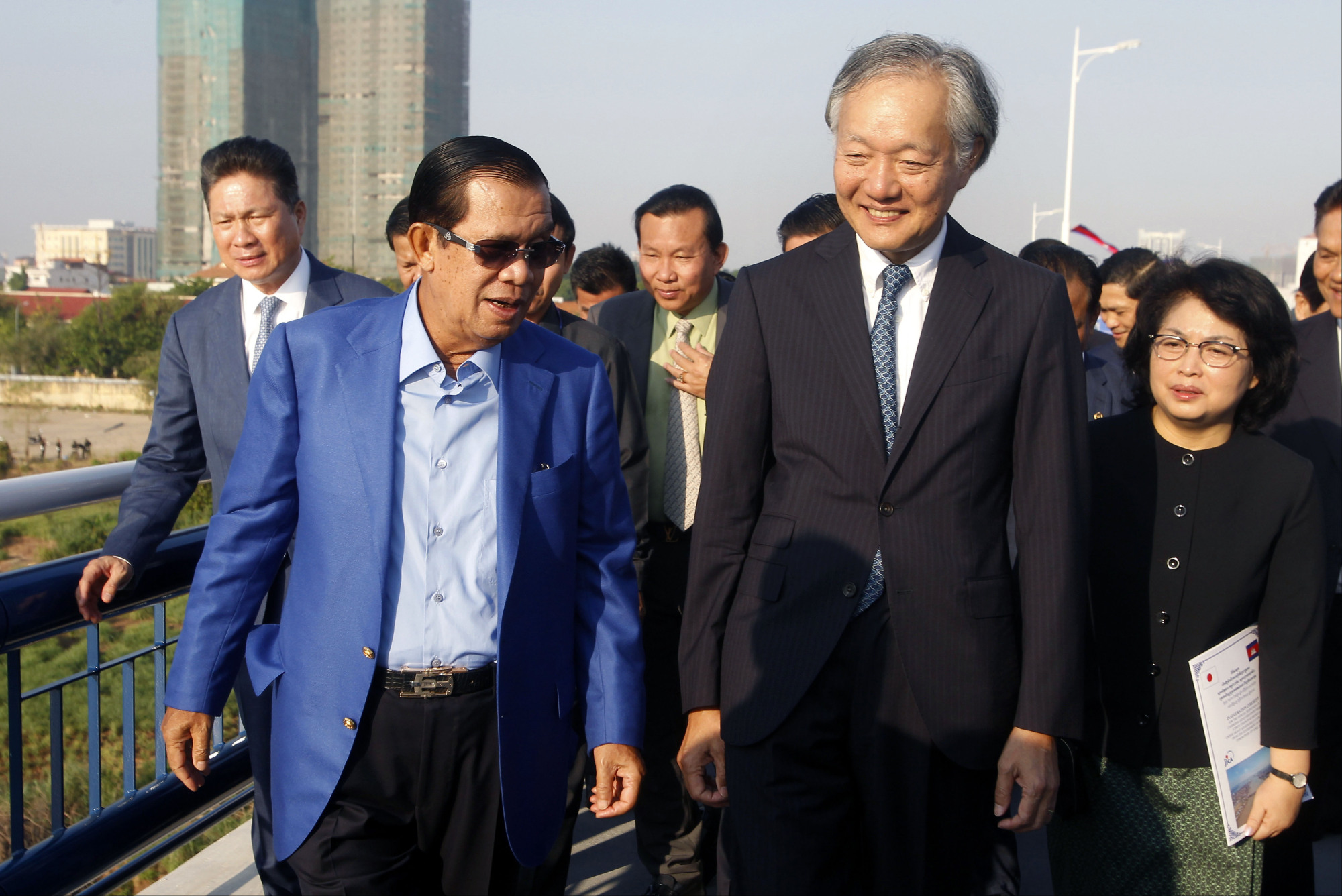Amid the ongoing deterioration of democracy, human rights and media freedom in Cambodia and the country's rising diplomatic tension with the European Union, Japan still maintains its low-profile diplomacy toward Cambodia. On March 12, the Japanese government invited 10 "young politics-oriented Cambodians" to pay a week-long official visit to Japan. This was the second time, following another such visit Japan organized in December.
According to a press release by the Japanese Embassy in Phnom Penh, "young politics-oriented Cambodians" were invited, but they were not ordinary youths. Those who took part in the recent visit were core members of Cambodian political parties. Among the invitees were Meas Sophorn, under secretary of state of the Ministry of Information, and Vann Chantho, under secretary of state of the Ministry of Water Resources and Meteorology, who are rising politicians in the ruling Cambodian Peoples Party.
Meng Sopheary, one of the lawyers of an opposition party leader, and Soun Chamroeun, who is among the 118 banned politicians of the dissolved Cambodia National Rescue Party, were also among the invitees. Cambodia's Supreme Court dissolved the CNRP in late 2017. Technically, therefore, it didn't legally exist as an opposition party in Cambodia at the time of the visit. But with the recent invitations, the Japanese government in effect recognized the CNRP as a Cambodian political party. Japan is practicing its traditional "twin-track diplomacy" toward Cambodia by engaging with both opposition and the ruling parties to advance its economic and strategic interests.


















With your current subscription plan you can comment on stories. However, before writing your first comment, please create a display name in the Profile section of your subscriber account page.